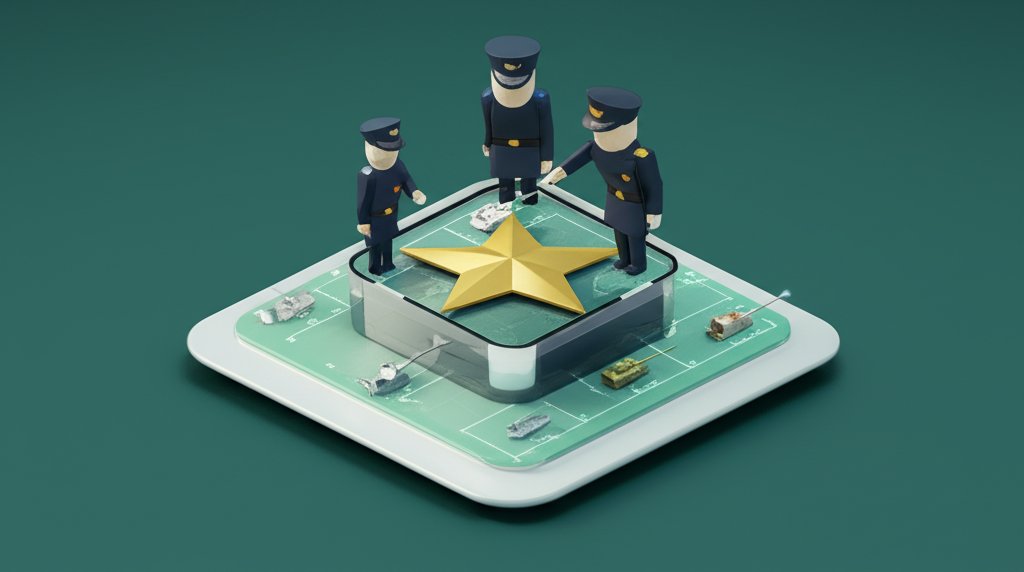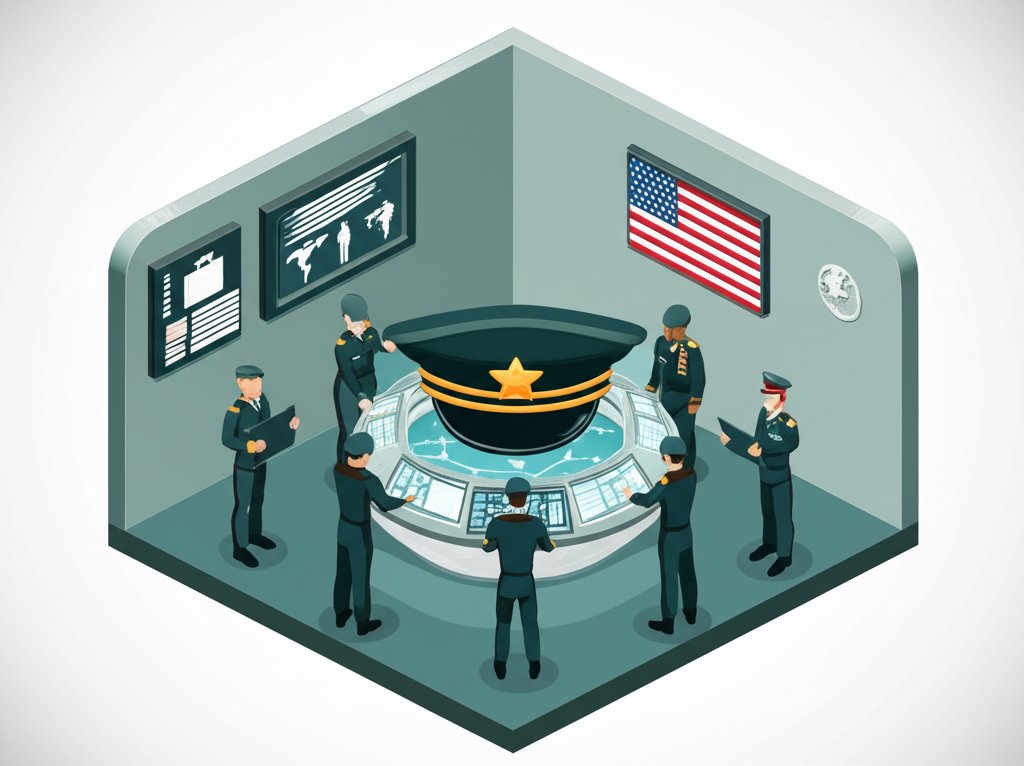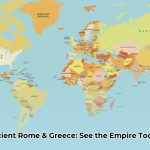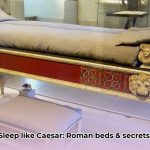In the grand tapestry of human history, where the clash of empires and the rise and fall of civilizations are woven, certain figures stand out not just for their strategic genius or political power, but for their sheer, unadulterated courage. These are the bravest of the brave, legendary military leaders whose actions on the battlefield and resilience in the face of overwhelming odds have etched their names into eternity. They are the individuals who, through their unwavering resolve, inspired armies to achieve the impossible and fundamentally reshaped the course of history.
This article delves into the lives and legacies of these extraordinary commanders, exploring what truly defines a courageous leader and highlighting the personal valor and strategic brilliance that propelled them to greatness. From ancient conquerors to modern generals, we’ll uncover the stories of those who embody the pinnacle of military leadership, captivating the imagination and continuing to inspire generations.
Understanding the qualities that define these individuals allows us to better appreciate the impact of figures like those discussed in our piece on iconic military leaders, and the battles that cemented their fame.
What Defines the Bravest of the Brave in Military Leadership?
The designation of “bravest of the brave” is not merely about lacking fear; it’s about acting decisively and effectively in the face of it. For military leaders, this encompasses a profound blend of qualities that transcend simple heroism. It’s about a steadfastness that permeates every decision, every command, and every personal action on the field of battle.
Beyond Fear: The Essence of Courageous Military Leaders
True courage in courageous military leaders manifests in several critical ways. Firstly, it’s the personal bravery of leading from the front, sharing dangers with troops, and demonstrating a willingness to sacrifice. This physical courage builds immense trust and morale. Secondly, it’s moral courage – the fortitude to make exceptionally difficult decisions that impact thousands of lives, often under immense pressure and with incomplete information. This includes challenging conventional wisdom, admitting mistakes, and holding steadfast to a vision even when it’s unpopular. Finally, it’s the resilience to endure setbacks, maintain composure amidst chaos, and rally forces after defeat. These intertwined forms of courage define the truly legendary.
Strategic Vision and Unwavering Resolve
While courage is paramount, it is rarely enough on its own. The greatest military leaders combined their bravery with astute strategic vision and an unwavering resolve to achieve their objectives. They understood that courage wasn’t just about fighting bravely, but about fighting smartly. This meant assessing risks, innovating tactics, and adapting to fluid situations with a clarity of purpose that instilled confidence in their subordinates and struck fear into their adversaries. Their resolve allowed them to execute complex plans, withstand prolonged sieges, and orchestrate daring maneuvers that defied expectations.
Ancient Icons: The Origins of Courageous Military Leaders
The annals of antiquity are replete with tales of courageous military leaders whose personal bravery and strategic genius laid the groundwork for future empires and military doctrines. Their actions shaped the world as we know it, proving that the human spirit, when led with conviction, can overcome incredible challenges.
Alexander the Great: Leading Persia’s Conquest with Daring
Born a prince of Macedon, Alexander III, famously known as Alexander the Great, epitomized the audacious and famous military leaders of the ancient world. His conquests stretched from Greece to India, forging one of the largest empires in history. Alexander’s courage was legendary; he consistently led his troops from the vanguard, personally engaging in combat. At the Battle of Gaugamela, facing a numerically superior Persian army, Alexander famously rode into the thick of the fighting, inspiring his men to a decisive victory. His willingness to share danger and his unwavering belief in victory cultivated an unbreakable loyalty among his soldiers.
Julius Caesar: Roman Prowess and Personal Valor
Gaius Julius Caesar, the Roman statesman and general, was another of history’s most greatest military leaders, whose campaigns expanded the Roman Republic and transformed its political landscape. Caesar’s military prowess was not only strategic but deeply personal. He was renowned for his ability to rally his troops in dire situations, often taking up a shield and fighting on the front lines himself. During the Gallic Wars, at the Battle of Alesia, Caesar famously besieged a massive Gallic force while simultaneously fending off a larger relief army. His calm under pressure, innovative siege tactics, and personal presence among his legions were crucial to his triumphs and illustrate the profound impact of a truly courageous military leader.
Hannibal Barca: Audacity Against Overwhelming Odds
The Carthaginian general Hannibal Barca is remembered as one of the most audacious and famous military leaders to challenge the might of Rome. His daring crossing of the Alps with war elephants remains one of the most incredible feats in military history, a testament to his bold vision and personal resolve. Despite facing immense logistical challenges and the harsh European winter, Hannibal pressed on, believing in his ability to surprise and defeat Rome on its own soil. His tactical brilliance, exemplified at the Battle of Cannae where he annihilated a larger Roman army through a double envelopment, showcased a leader utterly fearless in pushing the boundaries of conventional warfare.
Medieval to Early Modern: Leaders Forging New Paths
As empires shifted and warfare evolved, new types of military leaders emerged, proving that courage and strategic prowess were timeless attributes, irrespective of the age. These figures often rose from humble beginnings or challenged entrenched powers, their bravery defining new eras.
Genghis Khan: Uniting Empires Through Fearless Will
Temüjin, later known as Genghis Khan, stands as one of the greatest military leaders of all time, founding the vast Mongol Empire through a combination of brilliant strategy, ruthless efficiency, and an indomitable will. His leadership transformed disparate nomadic tribes into an unstoppable force. Genghis Khan’s personal courage was evident in his numerous campaigns, where he often led small, swift cavalry units to test enemy defenses or personally directed maneuvers on the battlefield. His ability to maintain discipline and loyalty across vast distances and diverse cultures, coupled with his fearless pursuit of conquest, cemented his place as a legendary figure.
Joan of Arc: Inspirational Bravery in Battlefield Command
A peasant girl who claimed divine guidance, Joan of Arc became a pivotal courageous military leader in the Hundred Years’ War, inspiring the French army to crucial victories against the English. Though lacking formal military training, her unwavering faith, charisma, and exceptional resolve electrified the French forces. She famously led charges into battle, carrying her banner and enduring wounds, demonstrating a fearlessness that conventional commanders often lacked. Her leadership at the Siege of Orléans was a turning point, proving that spiritual conviction and personal bravery could overcome seemingly insurmountable military obstacles.
Saladin: Chivalry and Strategic Acumen
Salah ad-Din Yusuf ibn Ayyub, known to the Western world as Saladin, was a Kurdish Muslim general and Sultan who united the Islamic states after the First Crusade and recaptured Jerusalem. Saladin was revered by both his allies and enemies for his chivalry, generosity, and exceptional military leadership. His courage was not just in battle, but in his unwavering conviction and moral principles. At the Battle of Hattin, Saladin skillfully outmaneuvered and decisively defeated the Crusader army, showcasing his strategic brilliance. His humane treatment of prisoners and respect for religious sites, even in conquest, underscored a leadership that combined power with profound moral strength, making him one of the legendary military leaders of his era.
Modern Eras: Famous Military Leaders Who Defined Courage

The advent of gunpowder, industrialization, and ultimately, global warfare, brought new challenges and demanded different forms of leadership. Yet, the core attributes of courage, strategic insight, and the ability to inspire remained central to the success of famous military leaders.
Napoleon Bonaparte: The Master Strategist’s Audacious Gambit
Napoleon Bonaparte, a name synonymous with military genius, stands among the greatest military leaders in history. Rising from obscurity during the French Revolution, he reshaped Europe through a series of audacious campaigns. Napoleon’s courage was often expressed in his willingness to take immense risks and execute lightning-fast maneuvers that bewildered his opponents. His personal presence on the battlefield, often riding among his troops under fire, bolstered their morale and fostered an almost fanatical devotion. From the brilliant Italian campaigns to the grand scale of his empire-building, Napoleon’s fearless ambition and tactical innovations set new standards for military command.
Michel Ney: “The Bravest of the Brave” Personified
If any individual earned the title “the bravest of the brave,” it was Marshal Michel Ney, a French general who served with distinction under Napoleon. Born into a humble family, Ney’s meteoric rise was fueled by his unparalleled courage and aggressive battlefield presence. His bravery was legendary, never shying from the thickest fighting. At the Battle of Borodino, his relentless cavalry charges broke Russian lines, earning him the moniker “the Indefatigable.” During the disastrous retreat from Russia, Ney’s rearguard actions, where he personally commanded small groups and famously fired a musket at the enemy himself, saved thousands of French lives. His willingness to lead from the absolute front, even in the most desperate circumstances, truly embodied the spirit of the bravest of the brave.
Erwin Rommel: The Desert Fox’s Bold Tactical Genius
Erwin Rommel, the German Field Marshal during World War II, earned the nickname “Desert Fox” for his brilliant command of the Afrika Korps in North Africa. Rommel was one of the famous military leaders known for his innovative use of mobile warfare and audacious tactics. His courage was not just in facing enemy fire, but in his bold decision-making, often taking personal command on the front lines and exploiting weaknesses with remarkable speed and flexibility. He frequently operated from the leading edge of his forces, gaining firsthand intelligence and making immediate tactical adjustments. This daring, combined with his tactical genius, allowed him to achieve remarkable victories against numerically superior Allied forces, solidifying his reputation as a formidable and courageous military leader.
George S. Patton: Aggression, Speed, and Unyielding Drive
General George S. Patton Jr. was an American general during World War II, renowned for his aggressive leadership, rapid armored advances, and unyielding will. Patton’s philosophy was to attack, attack, attack, and his personal courage was integral to this approach. He famously led his Third Army with a dynamic and often controversial style, pushing his men and equipment to their limits. His audacious relief of Bastogne during the Battle of the Bulge, a seemingly impossible maneuver in the depth of winter, showcased his determined spirit and brilliant command. Patton’s belief in leading from the front, often personally inspiring his troops with his fiery speeches and presence, marked him as one of the truly greatest military leaders of his era.
Audie Murphy: Unparalleled Individual Heroism
While many legendary military leaders are celebrated for their command, Audie Murphy stands out for his extraordinary individual bravery. The most decorated American soldier of World War II, Murphy received every military combat award for valor available from the U.S. Army, including the Medal of Honor. His defining act of courage came when, single-handedly, he held off an entire company of German soldiers for over an hour, even mounting a burning tank destroyer to use its machine gun against the enemy. His actions, while as a non-commissioned officer, embody the raw, unadulterated bravery that fuels an army and inspires courageous military leaders at every level.
Enduring Legacy: Why These are the Greatest Military Leaders
The impact of these bravest of the brave extends far beyond their immediate victories or defeats. Their stories offer profound insights into leadership, strategy, and the human capacity for resilience, making them essential figures for anyone studying history, leadership, or military science.
Impact on Military Doctrine and History
The innovations and leadership styles of these greatest military leaders have profoundly influenced military doctrine for centuries. From Alexander’s combined arms tactics to Hannibal’s envelopment strategies, and from Napoleon’s rapid maneuvers to Rommel’s mobile warfare, their approaches are still studied in military academies worldwide. Their actions demonstrated timeless principles of warfare, such as the importance of logistics, intelligence, morale, and the decisive application of force. Each one, in their own way, pushed the boundaries of what was thought possible in warfare, creating a lasting legacy that continues to shape military thought.
Inspiring Future Generations of Military Leaders
Perhaps the most significant legacy of these famous military leaders is their enduring power to inspire. Their tales of valor, resilience, and strategic brilliance serve as a beacon for aspiring leaders, both military and civilian. They teach us that true leadership often demands courage—not just physical bravery, but the moral fortitude to make tough choices and the mental resilience to persevere through adversity. The stories of the bravest of the brave remind us that while circumstances change, the qualities of vision, determination, and unwavering courage remain central to overcoming challenges and achieving greatness.
Conclusion

The journey through the lives of the bravest of the brave: legendary military leaders reveals a captivating tapestry of human courage, strategic genius, and unyielding resolve. From the ancient battlefields where Alexander the Great and Julius Caesar led from the front, to the modern theaters of war shaped by Napoleon Bonaparte and Erwin Rommel, the essence of an exceptional military leader remains constant: the ability to inspire, to strategize brilliantly, and to act with profound courage when all seems lost.
These courageous military leaders did not merely command armies; they embodied the spirit of their forces, transforming fear into resolve and doubt into victory. Their unwavering commitment to their objectives, their readiness to share danger, and their innovative approaches to warfare have left an indelible mark on history. Their legacies remind us that while the tools of war may change, the human element—the bravery, the intelligence, and the leadership—will forever be the decisive factor. They continue to be celebrated not just as historical figures, but as timeless exemplars of what it means to lead with courage and distinction.
FAQ Section
Q1: Who is considered “the bravest of the brave” in history?
A1: Marshal Michel Ney, a French general under Napoleon Bonaparte, is famously known by the esteemed title “the bravest of the brave” due to his extraordinary personal courage, aggressive leadership, and unwavering resolve in the thickest of battles, particularly during the retreat from Russia.
Q2: What are the common traits of courageous military leaders?
A2: Courageous military leaders often share several key traits: personal bravery (leading from the front), moral fortitude (making tough decisions under pressure), resilience (bouncing back from setbacks), strategic vision, empathy for their troops, and the ability to inspire unwavering loyalty and confidence.
Q3: Which famous military leaders are known for their personal bravery on the battlefield?
A3: Many famous military leaders were renowned for their personal bravery, including Alexander the Great and Julius Caesar, who routinely fought alongside their soldiers. More recently, figures like Michel Ney and even individuals like Audie Murphy (the most decorated American soldier of WWII) exhibited extraordinary personal valor.
Q4: How did greatest military leaders inspire their troops?
A4: The greatest military leaders inspired their troops through a combination of personal example (leading from the front), clear communication of vision and purpose, sharing hardships, demonstrating competence and strategic brilliance, and fostering a sense of camaraderie and shared destiny. Their unwavering confidence often proved contagious.
Q5: What role does courage play in strategic military leadership?
A5: Courage is fundamental to strategic military leadership. It enables leaders to take calculated risks, make bold decisions in uncertain situations, stick to their convictions despite opposition, and maintain composure and clarity under immense pressure. This blend of personal bravery and strategic fortitude is crucial for turning the tide of battle and war.










